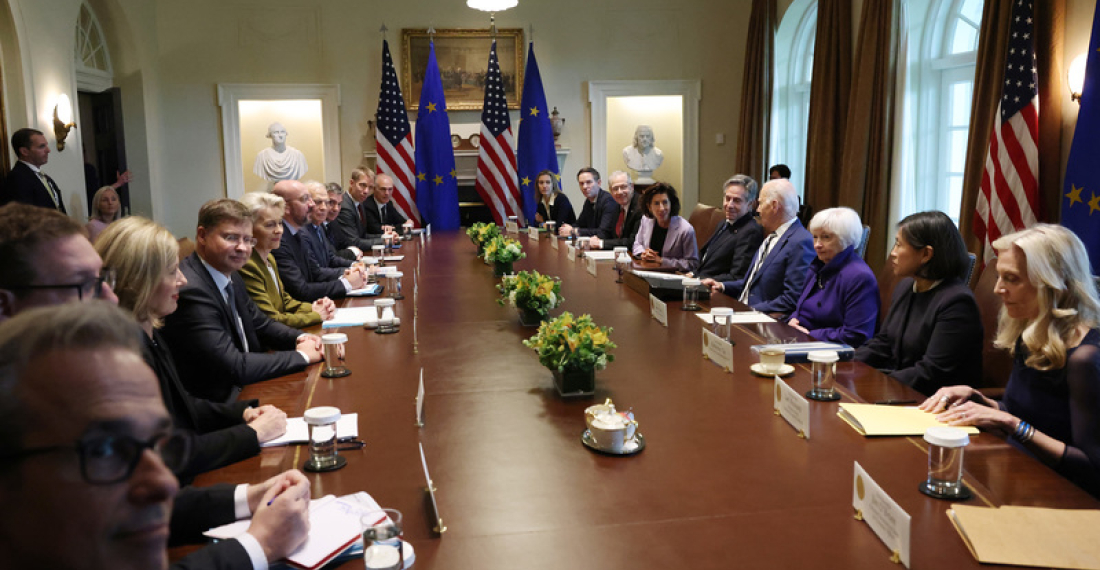A summit between the US and the EU has re-affirmed the resilience of the transatlantic relationship at a time of increased global turmoil. On Friday (20 October), EU leaders, notably the President of the European Council, Charles Michel, the President of the European Commission, Ursula von der Leyen, and the High Representative of the European Union for Foreign Affairs and Security Policy, Josep Borrell, met with US President, Joe Biden, and the US Secretary of State, Antony Blinken, in Washington DC.
The summit was an opportunity to review the close transatlantic partnership and areas of cooperation within the partnership. At the end of the summit the leaders adopted a joint statement, which includes a roadmap to underpin and further strengthen the relationship for years to come. A statement issued at the end of the meeting said:
Representing nearly 800 million citizens, united by our values and bound together by the most dynamic relationship on earth, we reaffirm our commitment to a transatlantic partnership that delivers for all our people.
The statement added that the EU and the US are close and like-minded partners that share a strong bond and a commitment to a rules-based international order and effective multilateralism.
Together, they are a positive force to foster stability and peace worldwide and address fundamental global challenges like a changed security landscape, democracy, respect for human rights and climate change.
The EU-US partnership brings benefits to its citizens on both sides of the Atlantic, and the EU and the US are further committed to build prosperity and deepen their cooperation on security and defence. The leaders recognised the value of a stronger and more capable European defence that contributes positively to global and transatlantic security and is complementary to, and interoperable with NATO.
As was expected the meeting focused on the situation in the Middle East. EU and US leaders called for the immediate release of all hostages and emphasize our shared view that a two-state solution remains the viable path to lasting peace. On Ukraine, they reiterated their resolve to:ensure Russia’s full accountability for its war, target third-country actors who materially support the war jointly enforce sanctions and export control measures.
The summit also discussed global issues, including Africa, the Balkans, the Caucasus and the Indo-Pacific Region.
On the Caucasus, the summit statement said that the EU and the US remain fully committed to supporting Georgia’s territorial integrity and sovereignty, and its European perspective. They also said that they remain committed to advancing a lasting peace between Armenia and Azerbaijan based on mutual recognition of sovereignty, inviolability of borders and territorial integrity. We urge Azerbaijan to ensure the rights and security of those who remain in Nagorno-Karabakh as well as for those who wish to return to their homes. We also call for all parties to adhere to the principle of non-use of force and threat of use of force.
read the full statement from the EU_US Summit on 20 October 2023 here






